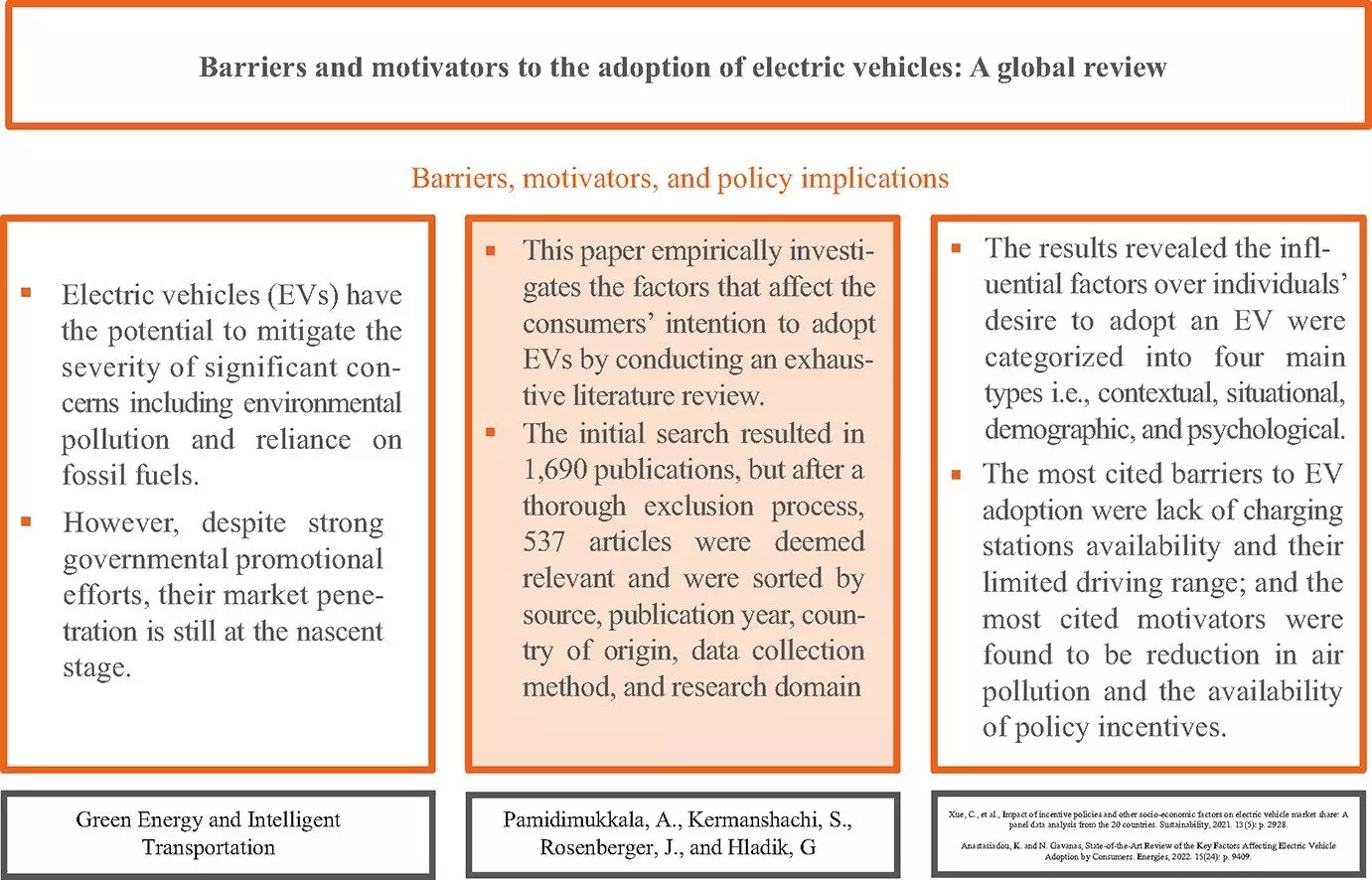The rise of electric vehicles (EVs) marks a significant step towards sustainability in the automotive industry. These vehicles hold the promise of addressing critical environmental issues such as air pollution and reducing dependency on fossil fuels. However, the transition to electric mobility is not without its challenges. High costs of EVs, concerns about charging infrastructure, and driving range limitations are the primary barriers that hinder widespread adoption.
A comprehensive review on consumer adoption of electric vehicles sheds light on the motivators and barriers influencing their decisions. One of the key findings is that the reduction of air pollution is a significant motivator for consumers considering EVs. However, the lack of charging stations and long charging durations pose practical challenges for potential buyers. This highlights the need for policymakers to address infrastructure concerns to boost EV adoption rates.
The study identifies four main categories affecting consumer intentions towards EV adoption: contextual, situational, demographic, and psychological factors. Situational factors like charging infrastructure availability and cost savings influence practical considerations, while psychological factors such as environmental consciousness and technology novelty play into emotional and ethical reasons for adopting EVs. Understanding these diverse factors is crucial for policymakers in crafting effective strategies to enhance EV adoption rates.
There is a demographic trend where younger and middle-aged consumers, particularly males with higher educational levels and incomes, show a greater inclination towards purchasing EVs. This demographic could play a pivotal role in driving future market trends and accelerating the adoption of electric mobility. Policymakers should tailor incentives and campaigns to resonate with this demographic to boost EV adoption rates.
Despite the challenges, the potential environmental and economic benefits of electric vehicles make it a journey worth pursuing. With strategic policy interventions, such as tax rebates, subsidies, and investments in charging infrastructure, coupled with technological advancements, EVs have the potential to significantly alter the automotive landscape towards a more sustainable and efficient future. Understanding and addressing the complex web of motivators and barriers highlighted in this study will be crucial for accelerating the adoption of electric vehicles globally.


Leave a Reply